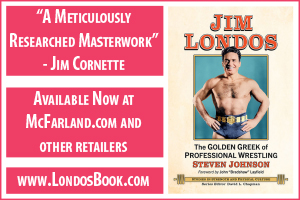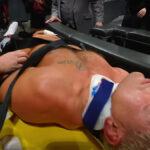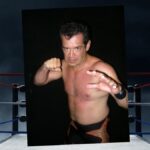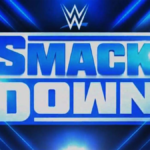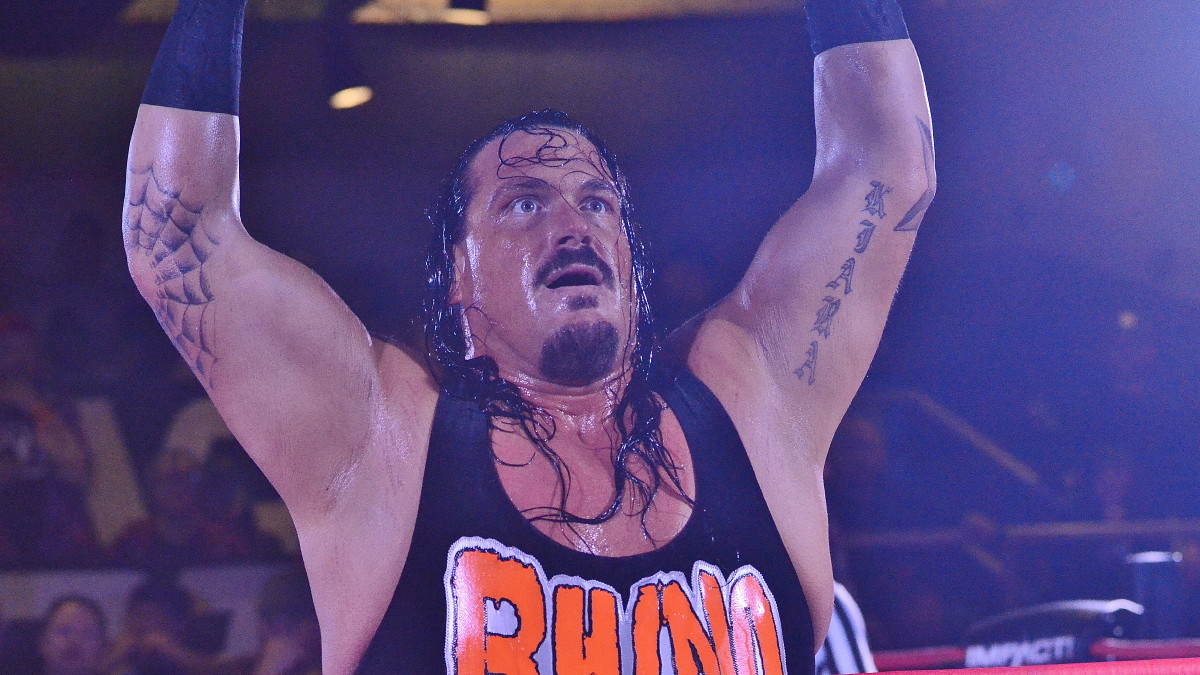The rise and fall of the Von Erich wrestling family legacy has been well documented over the years. But with the release of a new DVD, the history of WCCW and the Von Erich clan is rehashed in a very chilling and eye-opening manner.
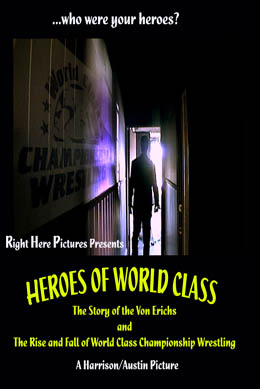
And out of a possible five stars, Heroes of World Class: The Story of the Von Erichs and The Rise and Fall of World Class Championship Wrestling gets a solid 12. It’s a definite keeper and one no wrestling fan should leave out of their collection. WrestleMania 22 can wait; get this WCCW disc first.
Director and producer Brian Harrison of Right Here Pictures spent 3-1/2 years making the documentary from November 2002 to April 2006 that included traveling to Texas conducting genuine interviews with names directly identifiable with WCCW.
The film’s interviews are pretty much a “who’s who” of 1980s wrestling that made Dallas a hotbed of pro wrestling talent — Gary Hart, Gen. Skandar Akbar, Bill Mercer, John Mantell, Mark Lowrance, Mickey Grant, “Gentleman” Chris Adams, David Manning and a slew of footage from Kevin Von Erich, the lone survivor of the Von Erich (Adkisson) family along with his mother, Doris, who still resides in Dallas.
“This was my first documentary and I did the entire film on half a shoestring budget,” said Harrison, a 33-year-old Chicago-area native now residing in Las Vegas. “I pretty much just taught myself along the way. I had already done some shooting and editing, but I had to learn about things like music licensing and location releases. And you can’t really learn how to start with more than 60 hours of interview and show footage and make a 2-1/2-hour movie from it until you get in there and do it.”
Over his 10-plus trips to Texas, Harrison estimates he filmed more than 30 hours of footage and sifted through 30-40 hours of archives and narrowed it down to the two hours and 40 minutes the DVD ended up being. When you watch the DVD, you’ll wonder where the time went, both figuratively and looking back more than 20 years.
Heroes of World Class begins by telling the story of the early times of WCCW and how Fritz Von Erich’s father, during his childhood, would have Fritz fight other children and they would pass around a hat for money. In theory, that’s what WCCW was in that Fritz’s main draws were his own sons (David, Kerry, Kevin and Mike) and he had them fight for, well, money.
The majority of WCCW shows took place at the Sportatorium in south Dallas. Not the greatest part of town, but on Friday nights, the arena was packed to the hilt.
“The Sportatorium was really just a shack,” said Harrison. “But on Friday nights, you had everyone there from your lawyer types to your gas station attendants.”

Brian Harrison
Harrison uncovered many facts that only a select few may have known. For instance, in its heyday, WCCW Championship Wrestling on TV had a higher rating than Saturday Night Live. And WCCW was on over 85 stations in 25 countries. In New York, WCCW drew a higher rating than the then-WWF.
“You have to remember that at this time, this was pre-Hogan,” said Harrison. “And World Class was already world wide. I mean, Kevin was invited to Israel just last summer to take part in a finale of a soap opera over there. He’s still known over there after all these years.”
And who had any idea that after his motorcycle accident in 1987, Kerry wrestled with a prosthetic foot? I, for one, didn’t. When Kerry died in 1993, Fritz made mention of it, but unless you were there that day or heard through the pre-Internet grapevine, that information was mostly obsolete.
As expected, and noted by the title, a large portion of the DVD is dedicated to the fall of WCCW and the fall of the Von Erichs as all the brothers, with the exception of Kevin, have passed on. All, with David’s exception, were the result of suicide.
When Feb. 10, 1984 is remembered (the day David died on a tour over in Japan), all those that speak, even to this day, get emotional, but no tears are shed on camera. What’s more emotional is when Manning, then just an employee and referee with WCCW, recounts how he got the call from Japan in the middle of the night that David died. Manning drove to Fritz and Doris’ trailer (they were building a house at the time) at daybreak and knocked on the door.
“Which one?” was all Fritz said when he answered the door.
He knew. And the viewer feels like they were there that day.
That’s what the DVD does — it takes you not only back in time, but into the minds of those that lived the glory days of WCCW.
And to hear Kevin talk about the day David died, it’s blatantly obvious that 22 years later, he’s not over it.
David was set to take the NWA World title from Ric Flair at the first Parade of Champions on May 6, 1984, but it quickly turned to the David Von Erich Memorial Parade of Champions and Kerry unseated Flair in front of 43,000-plus fans at a raucous and insane Texas Stadium.
Three years later, a Mike and David Von Erich Memorial Parade of Champions drew barely a tenth of that first memorial show’s attendance.
Footage of Kerry’s title win is shown, but no entire match is shown on the DVD. But matches aren’t needed to tell the story of the federation that, until David’s death, was poised to take over pro wrestling and be on a grander stage than WWF and even the NWA, of which WCCW was a part of until they seceded in the late 1980s.
“Kevin’s been married for 25 years and I think Pam kept him grounded all those years,” Harrison said. “They have four kids and recently became grandparents. Anyone else, I don’t know that they get through the trauma of losing their entire family.”
Mike overdosed after miraculously surviving a bout with toxic shock syndrome, Kerry shot himself on the family ranch and Chris, just 21 and undersized, killed himself after realizing he’d never be like his older siblings. Fritz later died from cancer just two months after being diagnosed. Another son, Jackie, was accidentally electrocuted as a child.
It was noted in the documentary that Chris was an asthmatic as a child and the steroids he took stunted his growth. He was always on the smaller side and rather than find a way to succeed in or outside the ring, he ended it with one gunshot.
Kevin talks about a time when Fritz pulled a gun on him (the same gun Kerry used to take his life) and said since he didn’t have the guts to kill himself like his brothers, he’d do it for him. Kevin adds that his existence drove Fritz nuts in that he was a constant daily reminder of the brothers that were gone.
Gino Hernandez and Adams, as a tag team the Dynamic Duo, are two more big-time wrestlers who started in WCCW and later died. Hernandez’ death was ruled a suicide, but Hart disagrees and makes some valid points why. Adams was shot to death by a friend after an argument and when Hart tells that story, “you can really feel his emotion and you know that was hard on Gary and still is,” Harrison said.
Hernandez, as many say on the disc, would have made it big in the WWF had he not died at a young age.
The DVD is not without its Freebirds-Von Erichs feud and also has a nice part on the David-Jimmy Garvin feud that involved Garvin and valet Sunshine being David’s hired hands for a day. The truly forgettable Lance Von Erich “cousin” gimmick was mentioned in brief and though the Von Erich brothers were against the idea, Fritz was boss and Fritz let the storyline unfold.
Another section of the DVD focuses on the supposed WCCW “curse” and a montage of dead wrestlers is shown. Names like Bruiser Brody (whose death in Puerto Rico gets several on the DVD talking and steaming), Buzz Sawyer, D.J. Peterson, Junkyard Dog, Terry Gordy, Billy Travis and Tojo Yamamoto all toiled in WCCW and later perished.
Was it a curse? You be the judge, but if you’re superstitious, the facts don’t lie.
Harrison made mention of the fact that growing up in Woodridge, Ill., he was a WCCW fan. Then, making this movie years later, he admitted it was almost nerve-racking interviewing his boyhood heroes.
“I watched WCCW on WPWR Channel 60 out of Aurora (Ill.) first early morning opposite morning cartoons, then later at 5 p.m. on Saturdays,” he said. “Every interview I did was difficult in the way that, as soon as I walked in the door to meet these guys, I was ten years old again. Devastation, Inc. scared the crap out of me when I was a kid and talking to Akbar, that was still intimidating.
“Talking to Kevin, especially, I wanted to have him talk about things that maybe he hadn’t before. I know he’s been asked certain questions so many times, but I never knew the extent of the history he’d been through and when he talked about Fritz pulling the gun on him, I think he needed to get that off his chest. I’m not sure a whole lot of people even know that story. Some stuff I chose to leave out of the DVD, but to hear Kevin talk about his upbringing and how Fritz was, I think he exorcised some demons so to speak.”
Kevin was interviewed outside the Von Erich ranch, inside Texas Stadium on the turf and in his home office on the ranch.
Not to give away too much of the DVD, but the most emotional part of the documentary is the end. Harrison and Kevin enter the Sportatorium, at this point infested with homeless and asbestos, and Kevin goes into detail what happened in the past in the famed building. He shows where he wrote on the wall after he won the American title from King Kong Bundy, his father’s office and the old dressing room and aisle.

Kevin Von Erich
Just to see Kevin, already in a world of hurt for half his life, know that the Sportatorium, having been semi-destroyed by arson, was about to be demolished, almost beaming with pride and at the same time heartbroken, you can’t help but feel for him.
The DVD makes you feel what Kevin Von Erich is feeling and you don’t second guess yourself for feeling that way. Even when the video fades the Sportatorium into thin air, showing the area where it stood as if it never did, it makes you wish that WCCW was still around and that Vince McMahon hadn’t raided the area in 1987.
“Making this film was very rewarding in the fact that World Class is part of wrestling lore and there isn’t a DVD out there that really chronicles it the way I hoped to portray it,” said Harrison. “Tragedies took World Class away in such a short period of time. The company was like a shooting star; one minute it’s here and the next it’s gone.”
Text across the screen is all the details the sale of WCCW to Jerry Jarrett and the subsequent renaming to the United States Wrestling Association (USWA).
Harrison mentioned that he doesn’t have an exact count of the pre-sale numbers, but that “the reviews so far have been overwhelming.”
Heroes of World Class will be officially released tomorrow, June 15th, and is available at www.rightherepictures.com for $29.95 plus shipping and handling.
Trust me, it’s worth every penny to go back and re-live the unforgettable times of 1982-1984. Even if you have vague knowledge and appreciation of World Class and the Von Erichs, this DVD will change your mind quickly and get you caught up to speed.
The Rise & Fall of ECW it’s not, but that’s a good thing. ECW is back; WCCW will never return. And that’s a shame.
RELATED LINK

